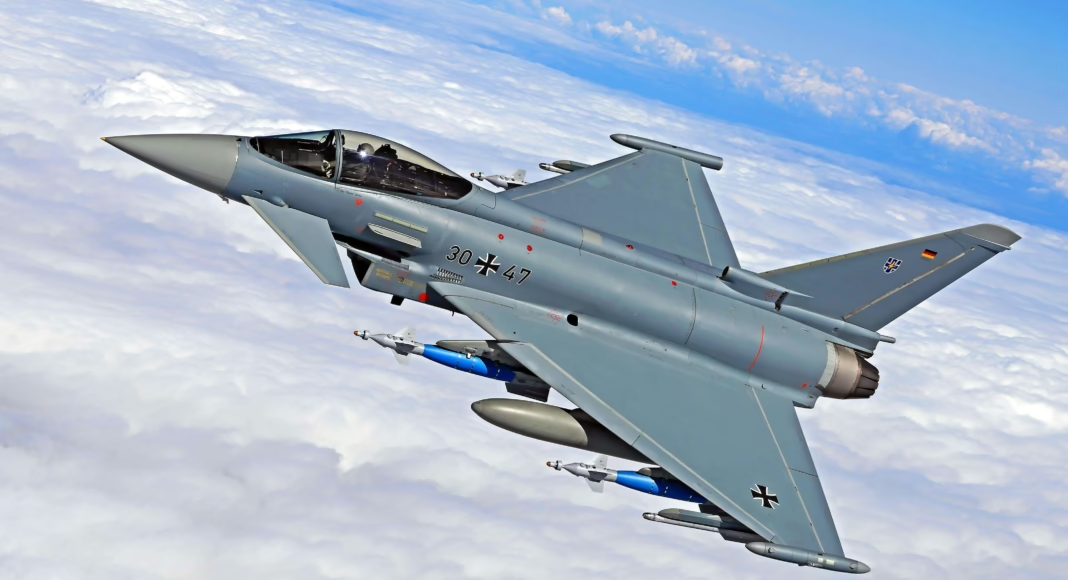Airbus CEO confirms Berlin’s new government won’t block sale, moving negotiations into final commercial phase. Deal could strengthen NATO’s southern flank and ease Turkey’s return to Western defense partnerships.
Germany has cleared the way for Turkey to purchase 40 Eurofighter Typhoon fighter jets, removing what had been the primary political obstacle to a multi-billion-euro deal now entering its final negotiating stages.
Michael Schoellhorn, CEO of Airbus Defense & Space, told Turkish news outlet Anadolu that negotiations with Ankara are approaching completion. He described German export control reservations as “thing of the past,” indicating that Berlin’s new coalition under Chancellor Friedrich Merz has signaled it will not block the potential sale.
The policy shift moves the transaction from political deliberation to commercial and technical negotiations, now led by BAE Systems, the British partner in the Eurofighter consortium that includes the United Kingdom, Germany, Italy, and Spain. The proposed package remains set at 40 aircraft.
For Turkey, the acquisition would modernize fighter capacity and strengthen NATO interoperability while indigenous aircraft development programs continue to mature. The Typhoon represents a proven, NATO-standard multirole platform with an established user base, easing training and logistics coordination with allied forces, particularly in the Middle East and Eastern Europe.
The aircraft deal would grant Turkish forces access to an integrated weapons platform equipped with sensors, datalinks, and tactical communication capabilities. Berlin’s decision to withdraw objections reduces bilateral friction and expands Turkey’s defense-industrial options within Europe.
Schoellhorn characterized the prospective sale as an opening phase in what could become a long-term partnership, with future technology transfers and upgrade packages potentially following.
The multi-billion-euro acquisition encompasses airframes, engines, spare parts, weapons, training, simulators and infrastructure. Budget impact will depend on delivery schedules, financing arrangements, and industrial participation structure. Local maintenance and component work could recycle spending into Turkey’s domestic industrial base and reduce lifetime program costs.
For the Eurofighter consortium, the order would extend manufacturing backlogs and sustain employment across BAE Systems, Airbus, and Leonardo while supporting investment in upgrades applicable to the broader fleet.
Commercial negotiations will focus on final configuration details, pricing, escalation clauses, offset arrangements, and support packages. Integration and sustainment costs remain significant considerations, and program success will hinge on the scope of technology transfer and maintenance arrangements negotiated in the final agreement.
The deal also would include training, aftermarket services, and potential upgrade packages, anchoring long-term cooperation between Turkey and the European defense consortium.

Key Takeaways
- Germany’s new government under Chancellor Merz removes export restrictions, clearing primary political obstacle to Turkey’s 40-aircraft Eurofighter purchase.
- Multi-billion-euro deal moves to commercial phase led by BAE Systems on behalf of UK-Germany-Italy-Spain consortium.
- Acquisition strengthens Turkey’s NATO interoperability and air defense capabilities while indigenous fighter programs develop.
- Package includes airframes, engines, spares, weapons, training and infrastructure with potential for long-term technology partnerships.
- Deal extends European defense manufacturers’ backlogs while offering Turkey domestic industrial participation opportunities.



